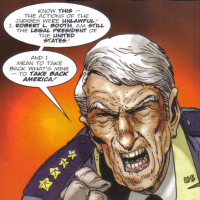The implosion of Verbruggen
Comments
-
A discussion about recreational drug use in cycling and no one's mentioned Tommeke?
Didn't David Millar also admit to a penchant for drugs other than the performance enhancing variety or am I just making that up? (I still haven't read the book that was bought for me last Christmas) I know he liked the booze.Correlation is not causation.0 -
There are a few points to make here.
I suspect many young cyclists (as stated above), after realising that they can make a career out of it, come to the pro peloton and think WTF. Then get on the gravy train when it quickly becomes apparent that it's the only way to compete (and again as stated a career is very short). Figures of 20% more performance are often suggested as what EPO gave.
Would Dave B have been quite so happy to have done this had it been ten years ago before the passport, when history shows that pretty much every single race was won by someone linked in some way to EPO doping?
The 1993 thing, where it just happened that there was a step-change in performance...you can't possibly ignore that.
I don't think this is a choice that's really the same as not working for an oil company as an engineer. I made the decision a few years ago, that although a smoker, I was not going to work advertising cigarettes which was offering a large salary rise. But I still had a job. Unlike a cyclist who then has to give up a career (be it through not being competitive or from being an outcast), and start afresh, lose all those dreams...0 -
There is another slant to the "To dope or not to dope" issue for young or guys new to the pro peloton, and that is individual personality. Obree walked when asked to contribute to the team doping fund as he was not prepared to take that step. Boardman said that the short term benefit of doping, as a career is about 10 years, was not worth the unknown future health risks. I suppose he was thinking more of enjoying at least 40 years with his wife and kids, after his career was over, as a healthy guy, rather than risking his future health through doping. I am not suggesting that was the only reason he rode clean, but it was one aspect.
Another personality might believe that cheating is just that, and it would not be a real victory if they could not do it under there own steam.
Who knows what the long term downside is to EPO, blood doping, growth hormones etc? There are a lot of ex footballers from the 60s 70s and 80s that wish they had not used painkilling injections and cortisone to play through injuries. What could the health fallout be from the EPO fest in the 90s and more recently?0 -
Bo Duke wrote:Joelsim wrote:I personally can't see how you can blame a rider when 99% of the peloton are doing it. It is a simple choice, do EPO & transfusions and whatever else or lose your career.
Brailsford decided 'No'. It needed one brave man to publically take the decision and actually promote the concept. Those who abhorred doping had their leader.
And their leader Brailsford came forth and hired doping Dr Leinders and ex dopers to help run his team, the team called Sky. And riders who have never won jack sh%t on the road went on to win 2 tours

 0
0 -
Let's not forget Rogers0
-
In a way whos to blame doesn't matter. They all got to go.
the end
going to take some time"If I was a 38 year old man, I definitely wouldn't be riding a bright yellow bike with Hello Kitty disc wheels, put it that way. What we're witnessing here is the world's most high profile mid-life crisis" Afx237vi Mon Jul 20, 2009 2:43 pm0



